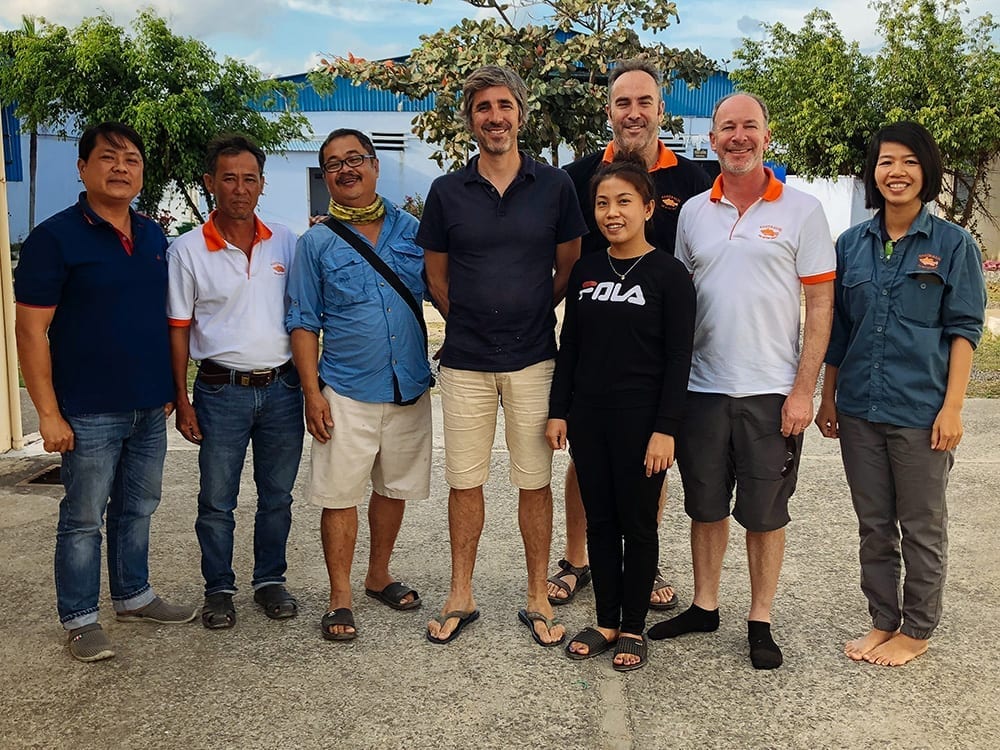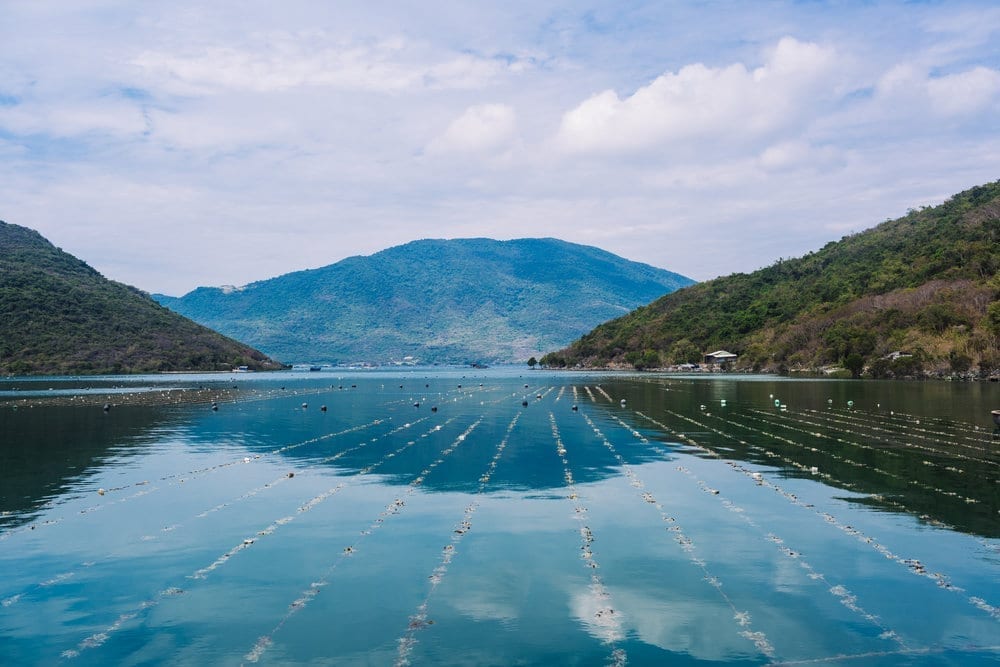Australis Launches Greener Grazing Project

Here at Australis, we continually ask how we can create large-scale change through ocean farming.
One way: The Better Fish® Barramundi you know and love.
Another way: Greener Grazing, a new project with the potential to counter climate change.
This post was originally published by Josh Goldman, Australis Founder & CEO, on GreenerGrazing.org.
A couple of fish farmers walk into a bar…
That’s pretty much how Greener Grazing—a project conceived to unlock the science behind farming an uncommercialized type of red seaweed that can virtually eliminate methane emissions from ruminant animal digestion—was launched.

Why Seaweed?
Our mission at Australis is to sustain ourselves and restore our planet by unlocking the potential of sustainable ocean farming. For many years we have been producing delicious, sustainable barramundi.
From my early days as an aquaponics farmer, I’ve long been passionate about integrated approaches to farming. Applying my early experiences to the ocean, we started experimenting with seaweed cultivation on our barramundi farms a couple years ago.
Bringing seaweed onto our barramundi farms has many benefits. Seaweed can help absorb nutrients, combat ocean acidification, provide habitat for small marine life, and create good jobs in the rural areas where we farm. The seaweed species that we raise is called Kappaphycus; a popular source of carrageenan, an extract that’s used in many food products as a thickener.
While we love integrating seaweed farming into our operations, we have been on the lookout for other types of seaweed that might more fully allow us to realize our vision for regenerative ocean farming.
Inspired by Scientific Discovery
We were thrilled to learn of research at CSIRO and James Cook University in Australia that showed that a type of red seaweed, Asparagopsis taxiformis, could virtually eliminate the methane emissions generated from ruminant animal digestion when incorporated into their feed. Amazing to be sure, but applying this at scale to benefit the climate would require vast amounts of seaweed. And so far, the life cycle of A. taxiformis has not been closed nor has it been farmed at scale.
As ocean farmers, we’ve learned a lot about the marriage between complex biology and responsible offshore farming. We thought we could leverage our expertise and infrastructure to help move this idea from the lab to the real world. So, we’ve begun to build a unique team of experts to get this project off the ground and into cow’s mouth’s as fast as possible.

Greener Grazing Is Born
In early 2018, Australis hosted several members of the Greener Grazing team at our Van Phong Bay facility in Vietnam, including seaweed experts Dr. Leonardo Mata and Recarte Cay-An to initiate discussions about the work ahead. We also brought in key members from the Australis production team to ensure that the project would be seamlessly integrated into the work environment.
Meanwhile, U.S.-based Greener Grazing team members Jim Slama and Julie Qiu have led discussions with leading food companies who’ve expressed great interest in the project about ways to get involved at a pre-commercial level. Many of them are Australis’ customers, and unsurprisingly, already understand the important role that ocean-farming can have on our food future.
If you’re interested in coming along with us on this unprecedented journey, follow along on the blog.